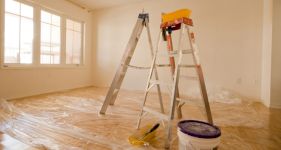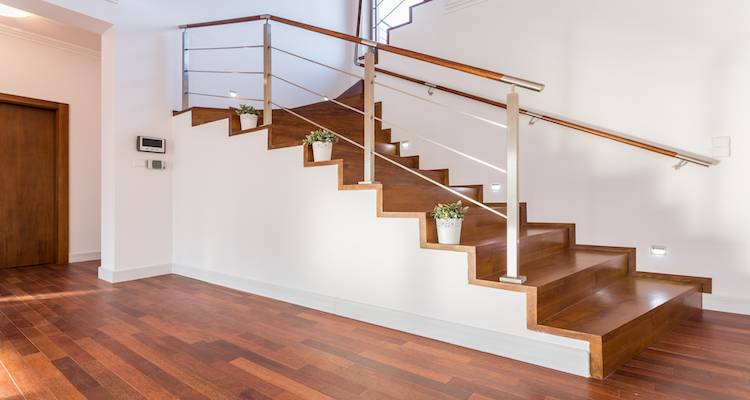uPVC Spray Painting Costs
- The average cost for uPVC spray painting is £150 to £500
- It will take about 1-3 hours to complete
- A breakdown of pricing information for different uPVC spray painting jobs
- How long the work will take depends on the specific job
- Cost factors that shape the price of uPVC spray painting
Thinking of having uPVC material (whether from a door, window frame or otherwise) painted? Want to know how much it should cost?
Unplasticised Polyvinyl Chloride or uPVC is a common material used for window frames, doors, and other exterior fixtures. uPVC is popular thanks to its low maintenance requirements and overall durability.
With that said, uPVC is prone to having its colour fade with time or the material may simply become outdated. The good news is that should either (or both) of these scenarios occur, uPVC spray painting is an affordable and effective solution.
This guide will look at the factors influencing the cost of uPVC spray painting jobs, helping you to make informed decisions when it comes to giving your uPVC surfaces a new lease of life.
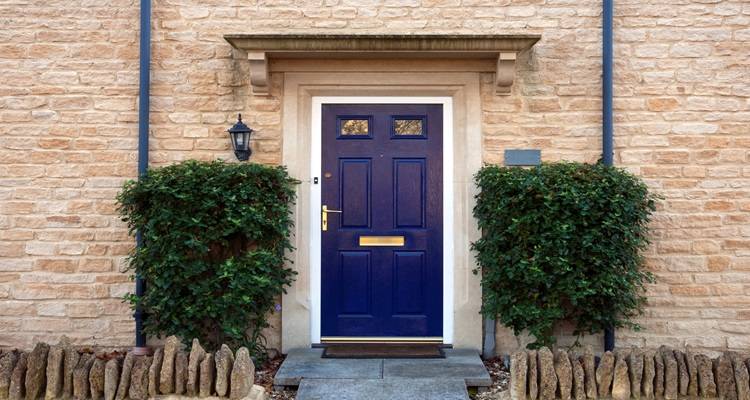
£350
Table of Contents
- How Much is uPVC Spray Painting?
- uPVC Spray Painting Prices
- Supply Only Costs
- Additional Costs
- Labour Costs and Timescales
- Cost Factors of uPVC Spray Painting
- Professional vs. DIY
- Maintenance and Care for uPVC Spray Painting
- Types of uPVC Spray Paint Jobs
- uPVC Spray Paint Finishes
- Hiring Contractors for uPVC Spray Paint Checklist
- FAQs
- Sources
How Much is uPVC Spray Painting?
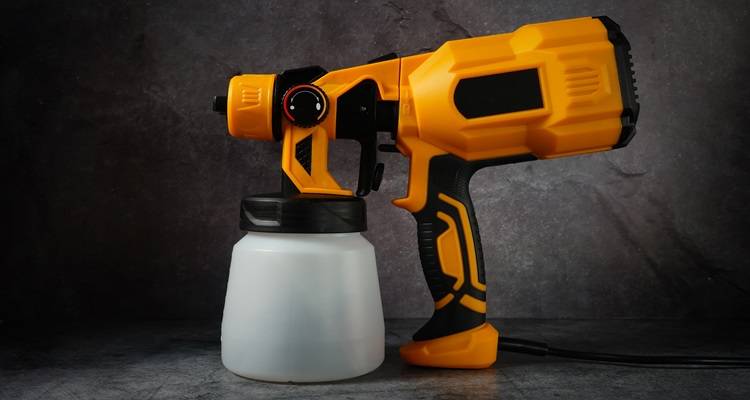
uPVC spray painting involves applying a specifically formulated type of paint to uPVC surfaces in order to freshen them up.
The average cost of uPVC spray painting is £150 to £200 for a window frame, £200 to £250 for a door and frame, £200 to £350 for a garage door, £500 to £2,000 for a conservatory, £150 to £300 for a porch, £300 to £350 in the case of a bay window, or £450 to £500 for one door and three external windows (i.e. the front of a property).
As for having an entire house uPVC spray painted, these average costs are £800 to £1,500 for a terraced house, £1,000 to £1,800 for a semi-detached house, or £1,200 to £2,000 if you have a detached house.
Among the advantages of having uPVC surfaces spray painted is that it’s cheap when compared with replacing entire fixtures (e.g. window frames), offers minimal disruption, and acts as an efficient way of enhancing your property’s appearance and overall feel.
Beyond that, uPVC spray painting is a lasting solution since in most cases, the work can last for 10+ years before you’ll want the surfaces to be repainted.
When looking to have uPVC surfaces spray painted, you should obtain several quotes from professionals for accurate estimates for the specific jobs you have in mind. You can use our services to obtain free quotes from local external painters today!
uPVC Spray Painting Prices
As shown above, the cost of uPVC spray painting can vary depending on factors such as the type of surface being painted and the size or number of surfaces being painted.
Cost by Type and Size of Surface
| uPVC Spray Painting Job | Average Cost |
|---|---|
| Window Frame | £150 to £200 |
| Door and Frame | £200 to £250 |
| Garage Door | £200 to £350 |
| Conservatory | £500 to £2,000 |
| Porch | £150 to £300 |
| Bay Window | £300 to £350 |
| 1 Door + 3 External Windows | £450 to £500 |
| Terraced House | £800 to £1,500 |
| Semi-Detached House | £1,000 to £1,800 |
| Detached House | £1,200 to £2,000 |
Supply Only Costs
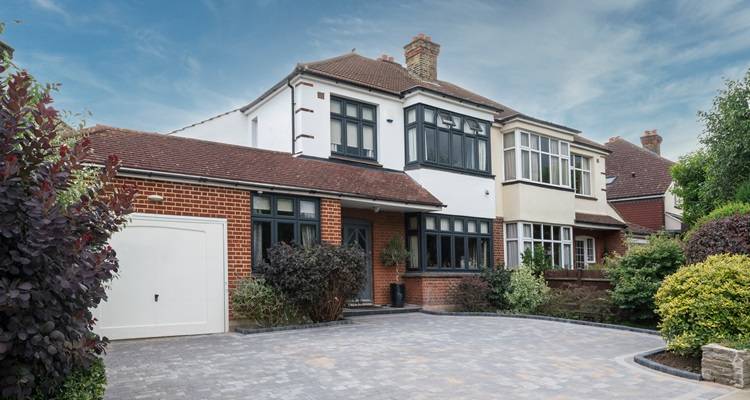
Some trade jobs (e.g. the addition of a house extension or replacing roof tiles) can have their total costs broken up into the price of labour and supply-only costs.
However, in the case of uPVC spray painting, the total cost may be all-inclusive (i.e., labour cost only). With that said, in some cases the price of supplies (specifically that of the paint) may be considered a separate cost.
With paint costing about £5 to £15 per litre, the supply costs (if counted specifically) could be as little as £5 to £15 for a single window frame (using one can of paint) to perhaps somewhere in the region of £90 to £540 to paint an entire house exterior. The latter may require up to 35+ paint cans in some cases.
Additional Costs
Here are some additional costs that may apply if you choose to have other relevant work performed at the same time: *
- Gutter cleaning - £18 to £75
- Gutter repairs or replacement work - £30 to £1,100
- Grass cutting - £20 to £30 per hour
- Garden landscaping - £250 to £1,200
- Fix decking - £150 to £400
- Patio repairs - £50 to £150
- Install new cavity wall insulation - £300 to £750
- Pressure washing of a roof if suitable** - £300 to £600
- Roof maintenance - £60 to £1,000
- Fit exterior/security lighting fitting - £80 to £50
*As you can imagine, some of this work can be performed by a painter, while some tasks will require other professional(s).
**Be sure that your roof is suitable before having it pressure washed. If in doubt, consult with a reliable pressure washing company.
Labour Costs and Timescales
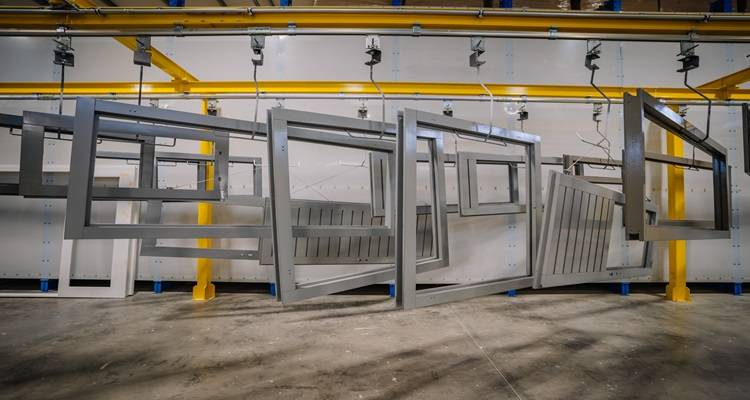
As discussed, in many cases, the price of uPVC spray painting from a contractor or company will be all-inclusive, with no distinction between labour and supply costs.
However, in general, painters charge around £150 to £400 per day for paint projects. Labour prices can vary significantly depending on location. For instance, labour prices tend to be above the UK average in the southeast of England while they are generally below the nationwide average in north England, Scotland and Northern Ireland.
Naturally, the larger the project, the longer it will generally take, and the longer it takes, the more expensive the job will likely be.
Here are the average timescales of different uPVC spray painting jobs:
- Window Frame - 1-2 hours
- Door and Frame - 1-2 hours
- Garage Door - 2-3 hours
- Conservatory - 6-8 hours
- Porch - 1-2 hours
- Bay Window - 2-3 hours
- 1 Door + 3 External Windows - 2-3 hours
- Terraced House - 1-2 days
- Semi-Detached House - 1-2 days
- Detached House - 2-3 days
The cost of labour and timeframe can be influenced by various factors, including the scale of the work, whether scaffolding is required, the state of the work area, ease of access to the work area, colour selection and the quality of paint and materials.
Cost Factors of uPVC Spray Painting
While we’ve touched on some of the cost factors involved in uPVC spray painting, here is a more comprehensive list of notable cost factors.
Surface Preparation
How ready the surface is for painting can prove a notable cost factor. This is because if the surface is not suitable for a paint job (in its current condition), the contractor will need to spend time preparing the area before they can paint, likely adding to your overall bill.
Of course, you may not be able to do anything about this in advance. For instance, a surface may be damaged or heavily weathered, requiring extensive preparation before the painting can begin.
Only undertake repair work DIY if it is safe and suitable, and you know exactly what is involved. Always take safety precautions if working DIY. If in any doubt, consult with a professional.
Size and Complexity of The Project
As already touched on, the size and complexity of the uPVC spray painting project is a significant cost factor. On the one hand, it’s going to be much cheaper to have a single uPVC door and frame spray painted than a conservatory, let alone an entire house’s uPVC fixtures.
Beyond that, the presence of specific architectural details or/and intricate designs may require more time and effort, thus adding to the total price of labour.
Colour Selection
Before hiring a painter, you’ll want to carefully consider what colours you’d like for the project(s) you have in mind.
Notably, some colours can cost more. Beyond that, certain colours can require more coats than others for effective coverage (e.g. dark or dramatic tones). Premium or custom colours may also add to the overall price.
Quality of Paint and Materials
As alluded to above, the quality of the paint product can influence the cost. More specific to uPVC spray painting, high-end uPVC-specific paints will generally cost more. The same is true of the materials required for uPVC spray painting.
Despite the added upfront costs of premium paints or/and materials suited for uPVC spray painting, the benefits come in the form of better longevity and durability than regular products/materials.
Professional vs. DIY
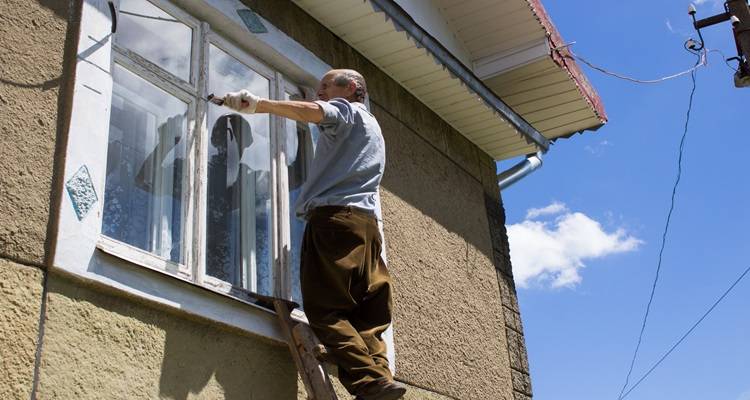
Lastly, a huge cost factor is whether or not you hire a professional or choose to take on the work DIY.
It goes without saying that you should only take on uPVC spray painting DIY if you’re sure of what’s involved and have the right skills and knowledge. It’s also essential to take the necessary safety steps.
Key safety precautions involved in spray painting DIY include:
- Following the manufacturer’s instructions carefully where applicable (e.g. to spray paint)
- Having someone hold the bottom of a ladder if you are using one
- Hiring a company to set up (and subsequently dismantle) scaffolding if needed *
*Scaffolding is a must if working at a height of greater than 4 feet above the lower level.
If done correctly, uPVC spray painting can be a suitable budget-friendly alternative. However, professional services will offer expertise and have their own equipment. Either way, most households can expect a better end result if the work is done by a professional.
Maintenance and Care for uPVC Spray Painting
Once you’ve had your uPVC surface(s) spray painted, you’ll want to take measures to prolong the lifespan of these surfaces.
Here are some key tips for maintaining and caring for uPVC spray-painted surfaces:
- Regularly remove dust/debris with a suitable detergent and water using a sponge or a soft cloth.
- Be careful not to scratch the paint (e.g. do not use sharp objects on these surfaces)
- Consider adding weatherproofing products where suitable.
- Inspect these surfaces for damage DIY and have them repaired by a professional when needed.
- Hire a professional to inspect or/and repair these surfaces every so often.
Types of uPVC Spray Paint Jobs
We’ll now look at each of the spray paint jobs discussed earlier individually from work on a window frame to uPVC spray painting an entire house.
Window Frame
Starting with a single window frame, as one of the simplest jobs on this list, it will take about one to two hours for a painter to spray paint one. Spray painting uPVC windows is likely to cost between £150 and £200 per window.
Door and Frame
For a door and its frame, a uPVC spray paint job will probably set you back somewhere in the region of £200 to £250 and, as with a window frame, will take a professional about one to two hours to complete.
Garage Door
Moving up in scale, a uPVC garage door is more likely to take between two and three hours to spray paint, with an average cost of £200 to £350.
Conservatory
As for a uPVC conservatory, a professional might take somewhere from six to eight hours to spray paint. In this case, you’d likely face an overall bill of between £500 and £2,000.
Porch
On average it takes a professional one to two hours to spray paint a uPVC porch. This job would probably cost around £150 to £300.
Bay Window
If you’d like to have a uPVC bay window spray painted, you can expect to pay somewhere in the region of £300 to £350 with the job lasting approximately two to three hours.
1 Door + 3 External Windows
Having one uPVC door and three uPVC external windows spray painted (i.e. the front of a house) will probably cost around £450 to £500. This type of project may last two to three hours.
Terraced House
Of course, to have all uPVC fixtures of a house spray painted is a big step up from most of the jobs mentioned above.
In the case of a terraced house, the work is likely to cost between £800 and £1,500 and last around one to two days.
Semi-Detached House
To have all uPVC fixtures of a semi-detached house spray painted is also likely to take between one and two days. However, the cost is likely to be higher at somewhere around £1,000 to £1,800 on average.
Detached House
Lastly, to have this work performed on a detached house, a professional will probably take two to three days and cost approximately £1,200 to £2,000.
uPVC Spray Paint Finishes
There are three common types of spray paint finishes to consider, namely gloss, satin, and matte. But how do they differ and what are their pros/cons?
Gloss
One of the most standout features of gloss paint finishes is that they offer 100% shine. This highly reflective paint does not absorb any light, which is why it looks so shiny.
Gloss paint finishes tend to be more durable than satin and matte finishes. However, despite this, gloss is not as popular as satin or matte for use on uPVC surfaces.
Satin
Satin is tamer than gloss with a shine of 30% meaning it is semi-opaque. Satin is also fairly durable but generally not quite to the same extent as gloss. Satin is a commonly used option for light paint colours such as light grey, white and off-white.
Matte
Lastly, Matte provides no shine at all. This means it is completely opaque. As a result, it is the closest option to ‘factory finish uPVC’. Matte paint finishes tend not to be as durable as gloss paint finishes but there are some exceptions on the market. Matte is often used when it comes to dark colours such as grey and black.
Hiring Contractors for uPVC Spray Paint Checklist

When looking to hire a professional painter to spray paint uPVC fixtures, you’ll want to consider the key points that we will lay out below.
Here are some notable points to have on your checklist:
- It’s important to find painters with plenty of relevant experience who you can have confidence in to pull off the work required.
- By looking at the previous work of the contractor you’re considering, you can get a sense of their skills and experience levels. This work simply being available to see (e.g. images of their previous work) is a good sign in of itself.
- Contractors often have online ratings and reviews listed, which allows households to see how previous clients feel about the work of the contractors in question. Checking out online reviews/ratings is a great way of informing yourself about the popularity and reliability of various professionals.
- Painters may or may not also have qualifications. While not necessary, qualifications can signal further experience and expertise.
- Checking whether they are part of any accreditation can also be worth doing. If they are, that’s an added bonus
FAQs
Can I spray paint uPVC windows myself?
How often should I have my uPVC surfaces spray painted?
Of course, it’s possible that you’ll feel repainting is needed sooner or later, depending on the speed at which the paint deteriorates. Eventually, though, you will need to replace the fixtures themselves.
What factors can affect the durability of uPVC spray paint work?
What are some downsides of uPVC spray painting?
Do rules and regulations apply to uPVC spray paint work?
Of course, this will be more important if you want to spray paint uPVC surfaces DIY, whereas any good professional (if you decide to hire a contractor) should know what products and equipment to use both for practical and regulatory reasons.
Sources
https://hi-pointscaffolding.co.uk/blog/at-what-height-is-scaffolding-required
https://www.bespokeupvcsprayers.co.uk/matte-satin-and-gloss-upvc-paint-whats-the-difference/


